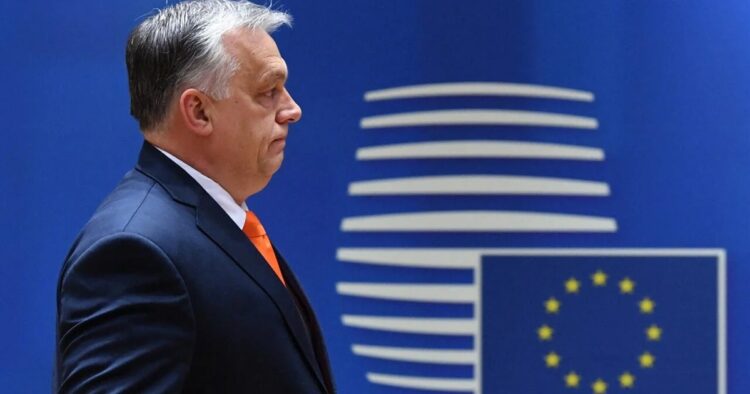Hungary decided to block a crucial financial aid package for Ukraine, valued at 50 billion euros, just hours after EU leaders agreed to open membership talks with Kyiv. The Hungarian Prime Minister, Viktor Orban, expressed his disagreement on social media, stating that the issue would be revisited next year after proper preparation.
Dutch Prime Minister Mark Rutte revealed that Hungary was the sole dissenting nation among the 27 EU members regarding the aid package. Despite this setback, Rutte remained optimistic, stating that funding talks would resume in early 2024, and there was still time for a breakthrough.
The EU Council had earlier agreed to initiate accession talks with Ukraine, a significant step in the country’s decade-long ambition to join the EU. Orban, known for his close ties to the Kremlin, did not participate in the discussions about accession talks, claiming that Hungary did not support the decision.
Orban argued that Ukraine had not met three out of seven conditions necessary for accession talks, asserting that Hungary did not want to share in what he deemed a “bad decision.” He maintained that Ukraine was not prepared for EU membership negotiations.
Despite Hungary’s opposition, the EU Council’s President, Charles Michel, considered the move a “clear signal of hope” and confirmed accession negotiations with Moldova. Ukrainian President Volodymyr Zelensky celebrated the decision as a victory for Ukraine and Europe.
The decision to open formal membership talks with Kyiv was seen as a strong message to Russian President Vladimir Putin, reaffirming Western support for Ukraine against Moscow’s invasion.
While European leaders hailed the decision as strategic, experts cautioned that fundamental obstacles still stood in Ukraine’s path to EU membership. The country must meet the Copenhagen Criteria, addressing issues like a functioning free-market economy, upholding European values, and maintaining an inclusive democracy. The process could take up to a decade, with negotiations under the 35 Chapters of the Acquis requiring unanimous approval from EU member states.

















Comments